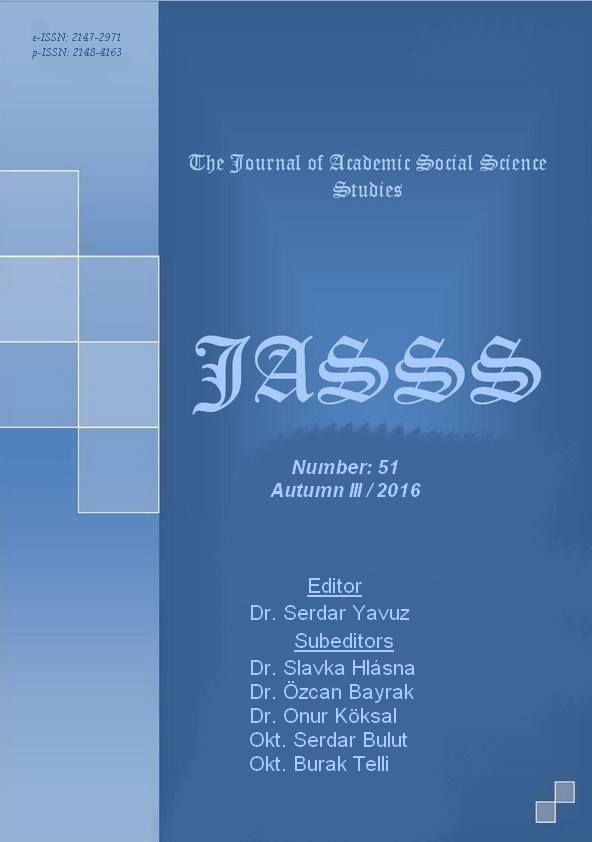ALMANCADA VE TÜRKÇEDE BİR ORGAN İSMİ OLARAK “DİL” İLE OLUŞTURULAN DEYİMLER - KARŞILAŞTIRMALI BİR ANALİZ -
Author :
Abstract
Türkçe ve Almancanın farklı kültürel geçmişleri, sözdizimsel farklılıkları, kelime hazinelerinin birbiriyle tam olarak örtüşmediği, birbirinden farklı sessel özelliklere sahip oldukları gibi nedenlerden dolayı birbirlerinden farklı iki ayrı dil olduğu inkâr edilemeyecek bir gerçekliktir. Dolayısıyla dünya üzerinde farklı diller vardır. Her bir dilin kendi tarihi süreci içerisinde edindiği birikimleri söz konusudur. Deyimler de bu tarihi akış içerisinde yüz yılların birikimi neticesinde oluşan ve bir dili zenginleştiren dil hazinesi içerisinde yadsınamayacak önemde bir yeri olan söz öbekleridir. Her bir dil sosyolojik bir süreç içerisinde şekillendiği ve zenginleştiği için, dillerin bire bir örtüşmesi beklenemez. Bu genel kural deyimler için de geçerlidir. Dili akıcı bir şekilde kullanmanın somut göstergesi olan bu söz öbekleri içinde yer alan ve “dil” organ adıyla teşkil edilen deyimler, bu çalışmamızda Almanca ve Türkçe dilleri açısından mercek altına alınmıştır. Almancada organ adı olan “Zunge” kelimesi ve lisan anlamında kullanılan “Sprache” kelimesi deyimlerde bariz bir şekilde ayırt edilebilirken, Türkçemizde her iki kelime de çoğunlukla “dil” olarak tercüme edilebildiği için, sesteş olmaları dolayısıyla bu iki kelimeyi ayırt edebilmek pek de mümkün olmamaktadır. Bu gerçekten hareketle bu çalışmada, Almancada organ ismi olarak kullanılan “Zunge” sözcüğü ve bunun karşılığında “dil” olarak Türkçeye aktarılabilen sözcükle oluşturulan deyimler, her iki kültürde hangi bağlamlarda kullanılabildiğini gösteren açıklamalarla sunulmuştur.
Keywords
Abstract
It is an undeniable fact that, Turkish and German languages are different from each other in many respects such as having different cultural backgrounds, syntactic features , vocabulary and pronunciation. Thus, this case leads to some serious problems in foreign language learning and teaching process. While the word ‘’ tongue’’ which is the name of an organ, is expressed by the word ‘’Zunge’’ in German , the word ‘’tongue‘’ which means “language” is expressed by the word ‘’Sprache’’.In this study, the Turkish word “dil” which is a homonymic word in Turkish and the word “Sprache” which is a separate word in German will be compared together with their idiomatic and contextual usages both in Turkish and German. There are various concrete suggestions for overcoming the difficulties and problems when we encounter their usage in language learning There are different languages on the Earth. Every language has a different cultural background . Furthermore, every language involves its own complex system of idioms, metaphors and other aspects of figurative language that often times perplex non-native speakers. We cannot expect languages to match one-to-one because they are shaped and flourished within a sociological process, This general rule is also valid for idioms. While the word ‘’Zunge’’ which means organ and the word ‘’Sprache’’ which is used for the meaning of ‘’language’’can be distinguished very easily in German , It is very difficult to do the same for the word” dil” in some Turkish contexts. Both of the words “Zunge” and “Sprache” are generally translated into Turkish the same since the word “dil” is a homonymic word in Turkish.
